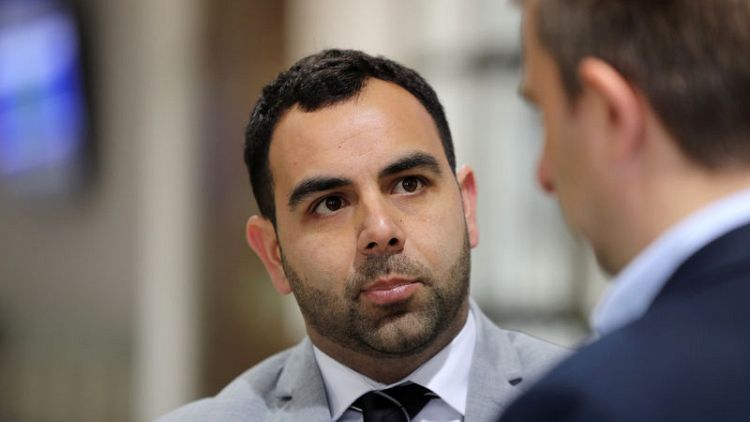By Dan Williams
JERUSALEM (Reuters) - An Israeli appellate court deferred a ruling on Monday over the deportation of the director of the local office of Human Rights Watch, accused of promoting pro-Palestinian boycotts of Israel, which Israel has banned.
The judge said she wanted more time to study the Twitter history of Omar Shakir, who is contesting the revocation of his work permit last year. The New York-based rights watchdog has cast the case as a bid to suppress global criticism of Israel's treatment of Palestinians.
Israel says that Shakir, a U.S. citizen, supports the Boycott, Divestment and Sanctions (BDS) movement. Israel has criminalised BDS and has lobbied Western powers to follow suit.
The case hinges in part on Shakir's pro-BDS tweeting before he became Human Rights Watch's director for Israel and the Palestinian territories in 2016, and whether his statements after the appointment also constitute such support.
Human Rights Watch says it does not support boycotts of Israel. It has defended Shakir's statements since joining the rights group, including a tweet backing Airbnb's delisting of homes in Israeli settlements in the occupied West Bank.
Right-wing advocacy groups represented in court argued that Israeli law does not distinguish between boycotts of the settlements and boycotts of Israel itself. One advocate, Nitsana Darshan-Leitner of the Shurat Hadin-Israel Law Centre, said Israel should consider barring Human Rights Watch entirely.
Shakir's Israeli lawyer, Michael Sfard, said that was what the case boiled down to, as "deporting the appellant means deporting the organisation".
The case should not hinge on trying to determine Shakir's personal views, as "the question is not what he thinks, but what he does, and whether he calls openly for a boycott," Sfard said.
The state's representative, Jerusalem District prosecutor Moran Brown, was circumspect about Human Rights Watch's status.
"The organisation is not defined by us as a boycott group, but it takes part in activity that supports boycotts," he said.
(Editing by Jeffrey Heller and Peter Graff)
